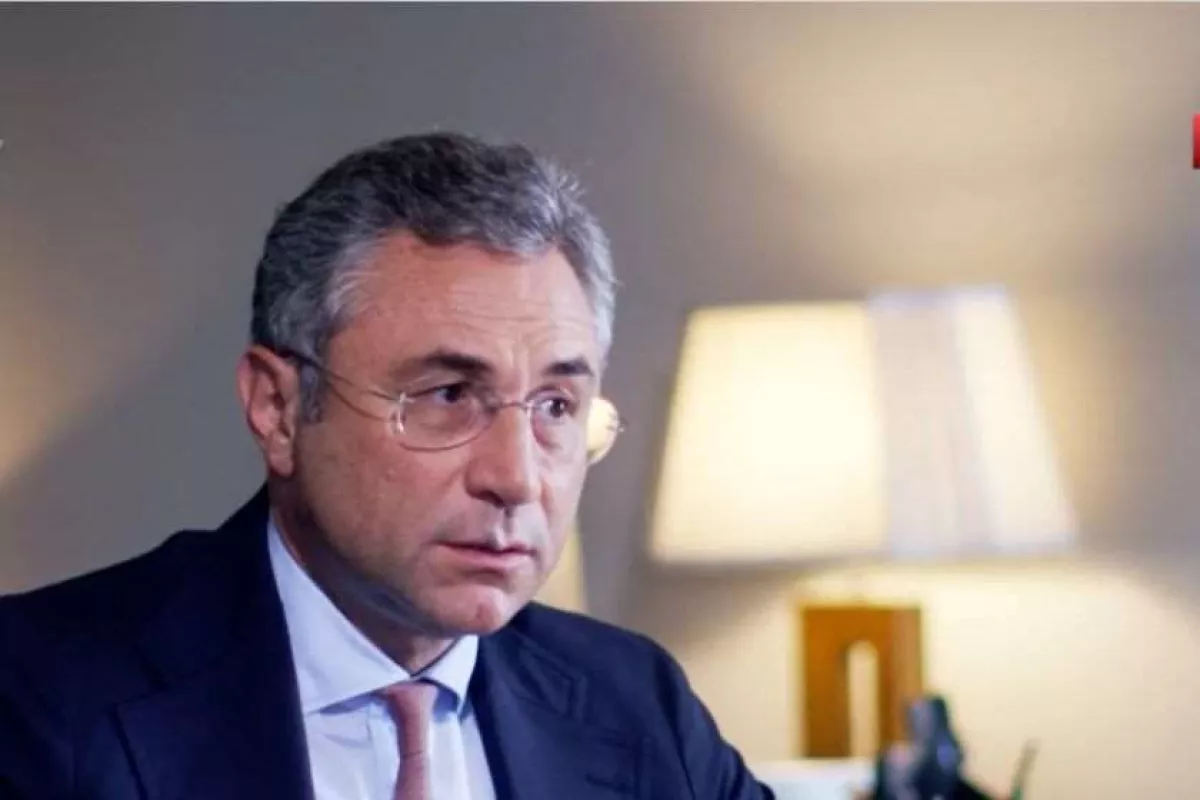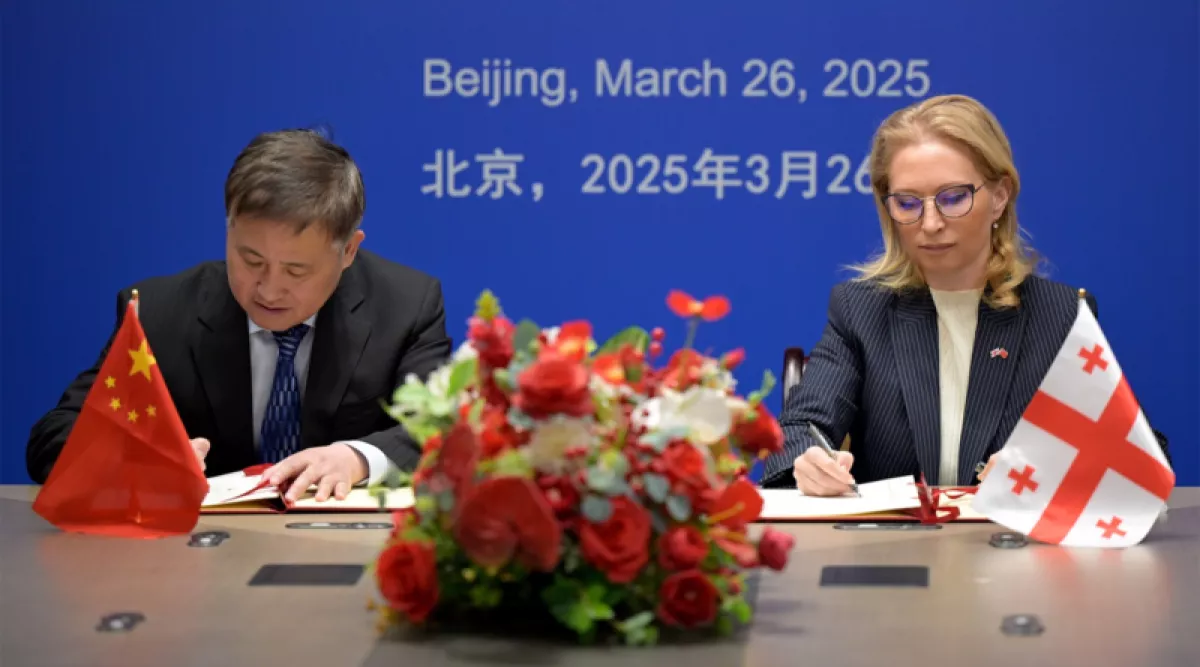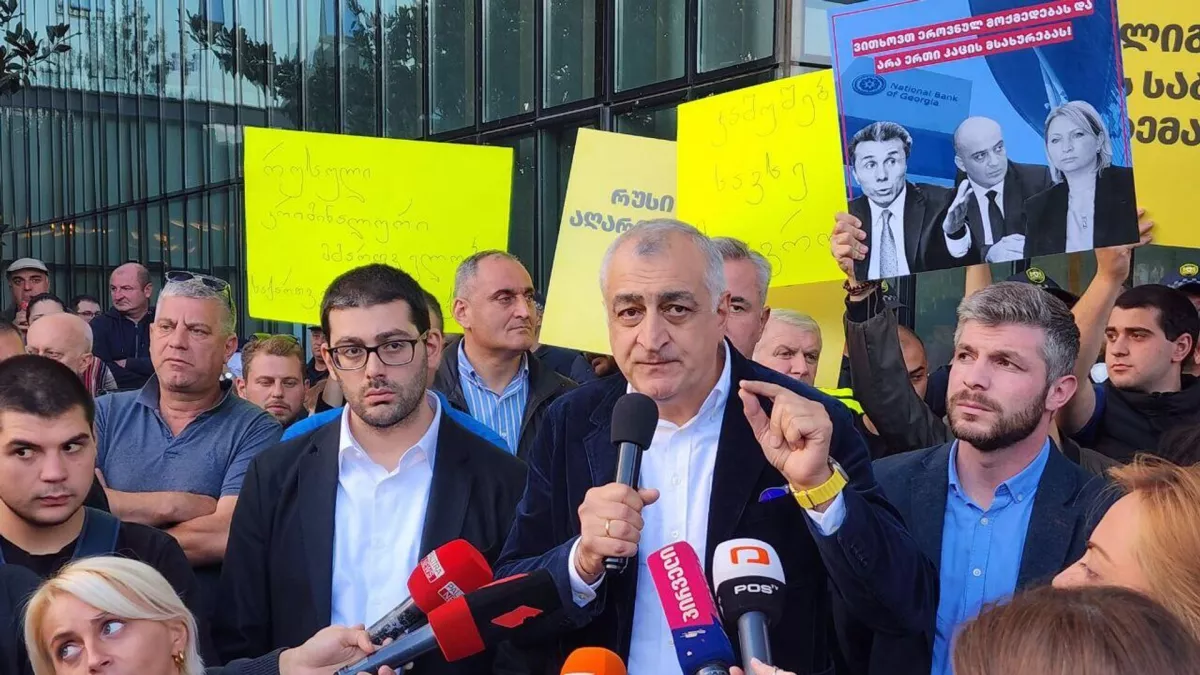Liberty in Chinese: Freedom denominated in Yuan China’s growing role in Georgia’s economy
The news of the upcoming acquisition of Liberty Bank by the Chinese group Hualing has stirred public debate in Georgia. Opposition media outlets and social networks were quick to label it a “sensation,” claiming that “China is taking over the country’s banking sector.” However, behind the loud headlines lies a more nuanced reality — this is not about control, but rather an attempt to balance external influences on Georgia’s economy.
At the same time, these same sources “failed to notice” that on May 12, 2025, a deal was finalised in which the American investment giant BlackRock, Inc. acquired 5.02% of the shares of Georgia’s largest bank, TBC Bank. As a result, this bank has effectively entered the “financial orbit” of one of the most influential Western players. Therefore, the talk of a Chinese “takeover” of Georgia’s banking sector appears one-sided — Chinese capital is more likely acting as a counterweight in a system where Western presence has long been the norm.

Liberty Bank currently ranks third in Georgia in terms of assets, trailing behind TBC Bank and Bank of Georgia (Sakartvelos Banki). A 95.99% stake in Liberty is owned by Georgian Financial Group B.V., a company registered in the Netherlands, in which businessman Irakli Rukhadze is a co-owner. Through another entity — Media Financial Group B.V. — the same group also owns the television company Imedi, which is affiliated with the ruling Georgian Dream party. According to the latest reports, it is Rukhadze who is negotiating the sale of his stake to Chinese investors.
At present, the resources of purely "Georgian" capital — even when politically connected — are clearly insufficient for Liberty Bank to play a full-fledged role in financing large-scale infrastructure projects aimed at boosting Georgia’s transit potential and developing the Middle Corridor. What’s needed are external investments of an entirely different scale. The only question is where those investments will come from.
The ruling Georgian Dream party, while not rejecting Western investments, views Chinese capital as a “balancing” force that contributes to strengthening Georgia’s national sovereignty.
Against this backdrop, the upcoming sale of Liberty Bank to Chinese investors appears entirely reasonable. All the more so given that Chinese companies are already actively involved in major infrastructure projects in Georgia — for instance, China Communications Construction Company, part of a Chinese-Singaporean consortium, has begun construction of the deep-sea port in Anaklia.

In March 2025, the President of the National Bank of Georgia, Natia Turnava, signed a Memorandum of Understanding with the head of the People’s Bank of China, Pan Gongsheng, during her visit to China. The document outlines plans to strengthen bilateral financial cooperation, work jointly to reduce systemic risks, develop trade and business ties, and enhance the efficiency of the banking systems in both countries. “Our joint goal is to make the banking sectors of our two countries more efficient and closely aligned… The Chinese side expressed great interest and a strong desire for close cooperation with us,” Turnava stated at the time.
Meanwhile, Georgia’s pro-Western opposition continues to rely exclusively on Western capital. However, the stalled implementation of the Anaklia deep-sea port project has shown that such hopes are not always justified.
In 2017, construction of the Anaklia port was launched by the Anaklia Development Consortium, which included TBC Bank (through TBC Holding) and the U.S.-based company Conti International LLC. The project was valued at $2.5 billion.
However, within just six months, dredging operations were suspended due to a lack of funding. By the end of 2019, the Consortium was required to present agreements with international banks for $400 million in loans, secure an investor to inject $120 million in capital, and provide signed contracts with a port operator and contractors. None of these obligations were fulfilled.

Additional tension surrounding the project arose from the scandal involving Mamuka Khazaradze — then-chairman of the supervisory board of TBC Bank, who later became an opposition politician.
He was accused of money laundering, which prompted his departure from business and entry into politics. Khazaradze went on to lead the opposition party Lelo for Georgia, which joined the Strong Georgia electoral bloc. Following the scandal, the Georgian government terminated the agreement with the Anaklia Development Consortium and announced a new tender for the port’s construction — a bid ultimately won in May 2024 by the Chinese-Singaporean consortium China Communications Construction Company.
According to independent financial analysts, neither TBC Bank nor Conti International had the necessary resources to carry out such a large-scale project from the outset. It is possible that their involvement was aimed at blocking other potential investors — particularly Chinese ones. The sponsors of Georgia’s pro-Western opposition, including Khazaradze himself, were well aware of China’s strong interest in the swift implementation of the port project.
The story of the Anaklia Development Consortium can be seen as an attempt to sabotage the development of the Middle Corridor. Ultimately, construction was frozen for nearly six years — from mid-2018 until 2024.
The political rhetoric of the pro-Western opposition, emphasising the “inevitability of Euro-integration” and the “Western choice,” was not backed by results. After the Chinese-Singaporean consortium won the bid, opposition leaders, including Salome Zourabichvili, continued to insist that investors in the project should be exclusively Western.
A revealing episode occurred just before the parliamentary elections in October 2024, when a journalist from POSTV asked Mamuka Khazaradze about his alleged Armenian heritage. Khazaradze responded sharply, calling it “xenophobia” from the Georgian Dream party and stressing that he is a “pure-blooded Georgian.” Nevertheless, TBC Bank’s actions regarding the Anaklia port largely aligned with the interests of Armenian nationalists seeking to slow the development of the Middle Corridor.

After being removed from the Anaklia port project, TBC Bank became more actively involved in the country’s political life. Amid anti-government protests in late 2024, the bank issued an official statement supporting the demonstrators: “TBC stands with the Georgian people fighting for freedom and the European path… We firmly believe that the temporary suspension of European integration contradicts the will of the Georgian people,” the bank declared following remarks by Prime Minister Irakli Kobakhidze about halting EU negotiations until 2028.
The country’s second-largest bank, Bank of Georgia, also expressed support for the protests, though less vocally. However, as the protest movement became marginalized, both institutions ceased making loud public statements.
The financial situation in Georgia has since stabilised. The recent purchase of a stake in TBC Bank by BlackRock proves that Western investors remain interested in the country. Yet, the largest infrastructure projects are now being carried out by Chinese investors. In this context, the involvement of Chinese capital in Liberty Bank appears to be a logical and strategically justified move.
Vladimir Tskhvediani, Georgia, exclusively for Caliber.Az








